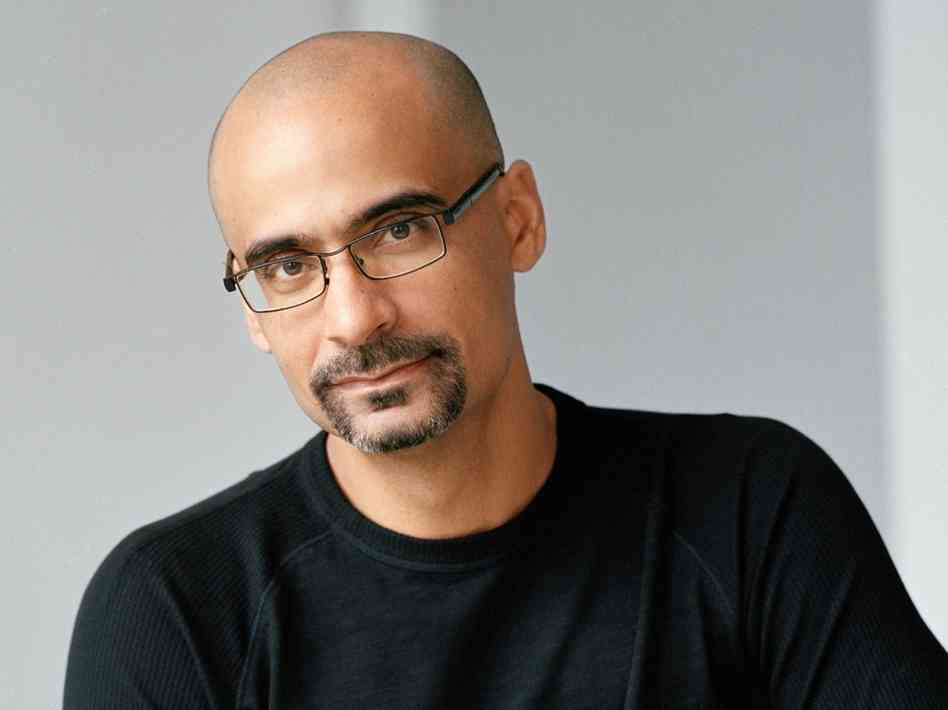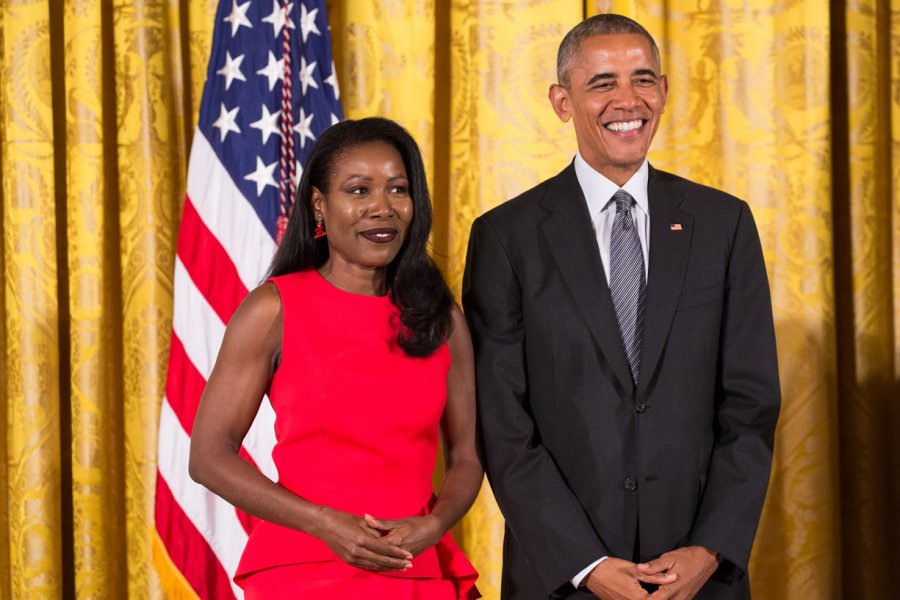Junot Diaz did not dress up for his talk. He wore black jeans, worn boots and his white shirttails out beneath a charcoal sweater, front and back. On an October Friday afternoon, he walked into the terraced auditorium at Cleveland State University, and leaned companionably against the wall, sipping coffee out of a disposable cup as Professor Antonio Medina-Rivera introduced him.
Medina-Rivera ran through Diaz’s dizzying credentials: a full professor at M.I.T., a 2012 MacArthur Foundation “genius” fellow, a Pulitzer Prize for his vibrant first novel “The Brief Wondrous Life of Oscar Wao,” which also won an Anisfield-Wolf book award. In addition, his host reported, Diaz volunteers at Freedom University, a new institution that attempts to meet the needs of undocumented college students in Georgia.
The 44-year-old Diaz took the stage and gradually built a case for embracing ambivalence and imperfection. “I am never trying to be right,” he said. “I’m trying to be the launch pad for somebody to be righter.” He mocked the preening persona-building on Facebook. He smiled and joked, even as he delivered some withering political remarks. Here is one sample:
“The elites are running rough-shod over us. They are engineering forced income transfers to the top. Elites are gutting the middle class, and that gets a shrug. But say, ‘A Mexican is taking your job,’ and everybody has an opinion.”
Diaz read the same passage from “Oscar Wao” that he selected in 2008 when he appeared at the Cleveland Public Library: three pages at the start of Chapter Two that describe Oscar’s sister Lola called to the bathroom by their mother to feel for a lump in the matriarch’s breast. It is a gorgeous passage, and one of the few stretches in the book without profanity or explicit sexual asides.
When Diaz finished, a student asked him if he thinks in Spanish. The writer was born in Santo Domingo, a third child in a neighborhood without electricity. His mother brought him to Parlin, N.J., to rejoin his father when he was six.
“Spanish is my birth language, and everything that means,” Diaz answered. “English is my control language, and everything that means. I can’t be super-smart in Spanish. In Spanish, I am less guarded.”
Asked how he perfected Lola’s voice, Diaz observed that poor children come-of-age in front of each other, in packed living quarters. In the comfort of the American middle class, adolescence happens privately behind closed doors.
“Most of us have so many aspects of ourselves, it is almost impossible to reconcile,” Diaz said, recounting his own years pumping iron as a young man, only to be caught out for his nerdy, Dungeons and Dragons-loving side by a dorm mate at Rutgers. There he fell under the literary influences of Toni Morrison and Sandra Cisneros, even as he worked full-time delivering pool tables, washing dishes, and pumping gas to cover tuition.
Diaz poked fun at peers who name Charles Dickens when asked who is their favorite author. He made a point of praising contemporaries – Ruth Ozeki for her new novel, “A Tale for the Time Being,” and Edwidge Danticat for “Claire of the Sea Light” calling it “unbelievable, the best one she has done.” (Danticat won an Anisfield-Wolf award for “The Dew Breaker” in 2005.)
Everyone, Diaz claimed, is searching for the place where “all the parts of us can be present and safe.” For him, that place was reading. “I write because I love books,” he said. “Writing is just my expression of my excess love of reading.”
Still, he warned his listeners against unbridled enthusiasm. “Love something too much and you know the kind of kids you raise. . .
“It is OK to be involved in a practice you are ambivalent about. Some of the best parents are ambivalent about being parents. . . I am deeply ambivalent about the craft of writing. Anyone who grew up in the shadow of the (Dominican Republic) Trujillo dictatorship can’t see stories as only good. There is a cost to everything. I am always aware of the shadows that lurk in every artistic practice, and I’m always troubled by them.”
Then the sober mood broke. In a different conversation, Diaz allowed that he had been texting pictures of Cleveland. He sent one to his buddy Christopher Robichaud, a lecturer in ethics at Harvard’s Kennedy School. Robichaud grew up in Euclid and Chardon, and graduated with a degree in philosophy from John Carroll University. The two men bonded over “tabletop role-playing games, horror movies, superhero comics,” Robichaud said.
And yes, he answered Diaz: the structure the writer photographed was indeed the West Side Market that Robichaud had described in their chats about childhood.




Anisfield-Wolf Book Awards | VIDEO: Junot Diaz On Winning An Anisfield-Wolf Award For “The Brief Wondrous Life Of Oscar Wao”
November 7, 2013
[…] work, This is How You Lose Her, Junot Diaz swung by Cleveland State University in October for its Cultural Crossings seminar. We caught up with our 2008 fiction winner for his reflections on winning an Anisfield-Wolf award. […]